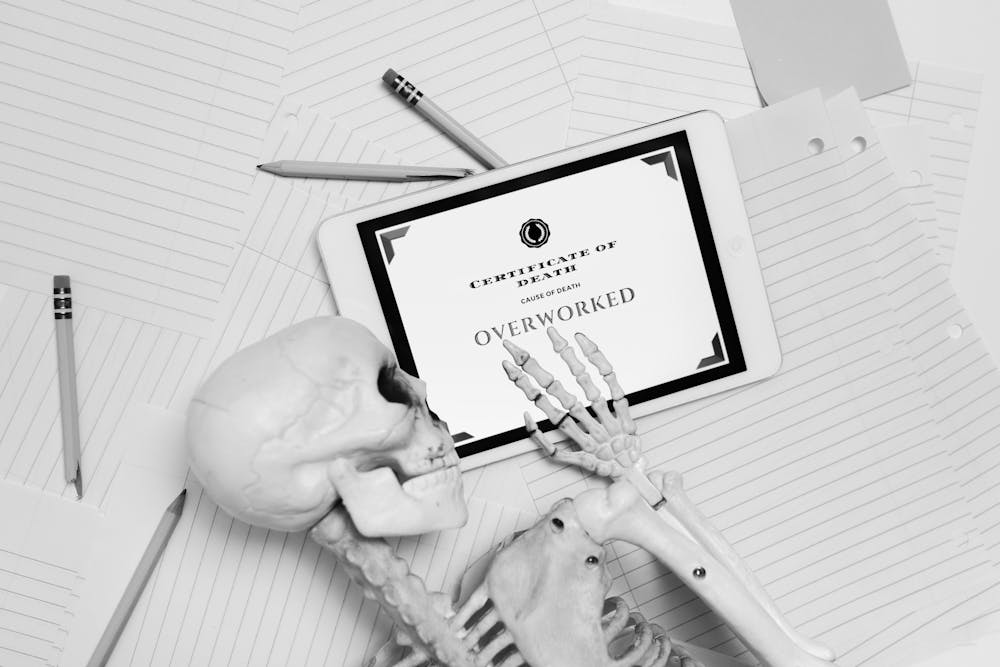In my journey through the demands of work, personal responsibilities, and the myriad challenges of daily life, I’ve come to recognize the crucial role that mindfulness plays in preventing burnout—a pervasive issue in today’s fast-paced and demanding world. Burnout, characterized by emotional exhaustion, cynicism, and reduced efficacy, can take a significant toll on our mental, emotional, and physical well-being. However, through the practice of mindfulness, we can cultivate the resilience and inner resources needed to navigate stress and prevent burnout.
 Mindfulness, at its core, is about being fully present and engaged in the present moment, with an attitude of openness, acceptance, and non-judgment. By cultivating mindfulness, we develop greater awareness of our thoughts, emotions, and bodily sensations, allowing us to recognize the early signs of stress and burnout before they escalate into more serious issues.
Mindfulness, at its core, is about being fully present and engaged in the present moment, with an attitude of openness, acceptance, and non-judgment. By cultivating mindfulness, we develop greater awareness of our thoughts, emotions, and bodily sensations, allowing us to recognize the early signs of stress and burnout before they escalate into more serious issues.
 One of the key ways that mindfulness helps prevent burnout is by promoting self-awareness and emotional regulation. Through mindfulness practices such as meditation, deep breathing, and body scanning, we learn to observe our thoughts and emotions with detachment, allowing us to respond to stressors with greater equanimity and resilience. By cultivating this inner resilience, we’re better able to cope with the challenges and pressures of daily life without becoming overwhelmed or depleted.
One of the key ways that mindfulness helps prevent burnout is by promoting self-awareness and emotional regulation. Through mindfulness practices such as meditation, deep breathing, and body scanning, we learn to observe our thoughts and emotions with detachment, allowing us to respond to stressors with greater equanimity and resilience. By cultivating this inner resilience, we’re better able to cope with the challenges and pressures of daily life without becoming overwhelmed or depleted.
 Moreover, mindfulness helps us develop a greater sense of perspective and compassion towards ourselves and others. By practicing self-compassion and self-care, we learn to prioritize our well-being and set boundaries around our time and energy, reducing the risk of burnout. Additionally, by cultivating empathy and compassion towards others, we create a supportive and nurturing environment that fosters resilience and connection—a crucial antidote to burnout.
Moreover, mindfulness helps us develop a greater sense of perspective and compassion towards ourselves and others. By practicing self-compassion and self-care, we learn to prioritize our well-being and set boundaries around our time and energy, reducing the risk of burnout. Additionally, by cultivating empathy and compassion towards others, we create a supportive and nurturing environment that fosters resilience and connection—a crucial antidote to burnout.
 Another important aspect of mindfulness in preventing burnout is its ability to enhance focus, concentration, and cognitive flexibility. By training our attention and awareness, we’re better able to stay present and focused amidst distractions and pressures, allowing us to work more efficiently and effectively. Moreover, mindfulness helps us cultivate a beginner’s mind—an attitude of curiosity and openness to new experiences and perspectives—which can help prevent the stagnation and disillusionment that often lead to burnout.
Another important aspect of mindfulness in preventing burnout is its ability to enhance focus, concentration, and cognitive flexibility. By training our attention and awareness, we’re better able to stay present and focused amidst distractions and pressures, allowing us to work more efficiently and effectively. Moreover, mindfulness helps us cultivate a beginner’s mind—an attitude of curiosity and openness to new experiences and perspectives—which can help prevent the stagnation and disillusionment that often lead to burnout.
 In my own experience, integrating mindfulness into my daily life has been transformative in preventing burnout and enhancing my overall well-being. By carving out time for meditation, mindfulness walks, and other contemplative practices, I’ve learned to cultivate a sense of calm and clarity amidst the chaos of everyday life. I’ve discovered that by nurturing my inner resources and cultivating a mindful approach to work and life, I’m better able to sustain my energy and enthusiasm over the long term.
In my own experience, integrating mindfulness into my daily life has been transformative in preventing burnout and enhancing my overall well-being. By carving out time for meditation, mindfulness walks, and other contemplative practices, I’ve learned to cultivate a sense of calm and clarity amidst the chaos of everyday life. I’ve discovered that by nurturing my inner resources and cultivating a mindful approach to work and life, I’m better able to sustain my energy and enthusiasm over the long term.
 In conclusion, the role of mindfulness in preventing burnout cannot be overstated. By cultivating mindfulness, we develop the awareness, resilience, and compassion needed to navigate life’s challenges with grace and integrity. As we continue to prioritize self-care and well-being in our daily lives, we empower ourselves to live with greater purpose, presence, and vitality, free from the grip of burnout and aligned with our deepest values and aspirations.
In conclusion, the role of mindfulness in preventing burnout cannot be overstated. By cultivating mindfulness, we develop the awareness, resilience, and compassion needed to navigate life’s challenges with grace and integrity. As we continue to prioritize self-care and well-being in our daily lives, we empower ourselves to live with greater purpose, presence, and vitality, free from the grip of burnout and aligned with our deepest values and aspirations.





